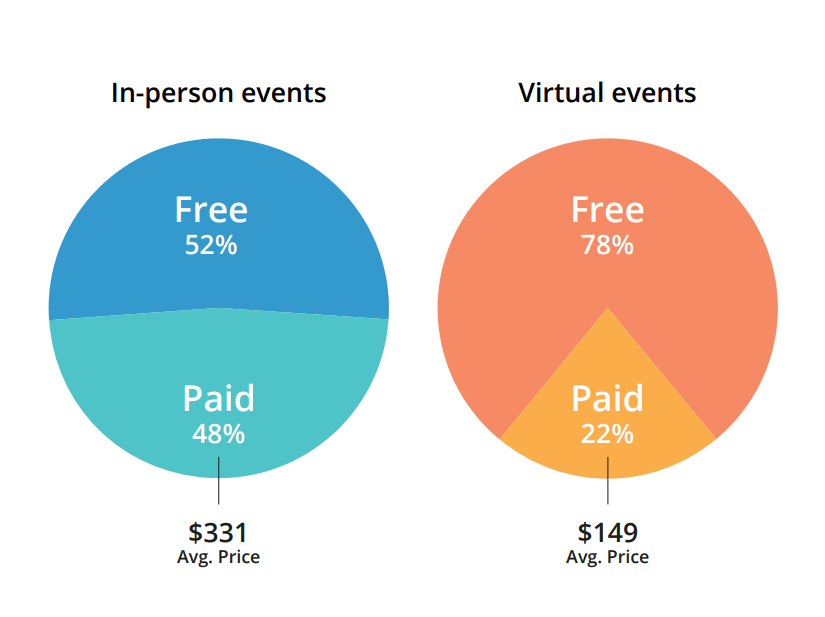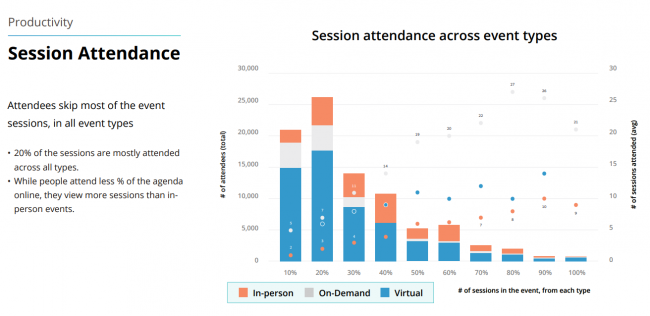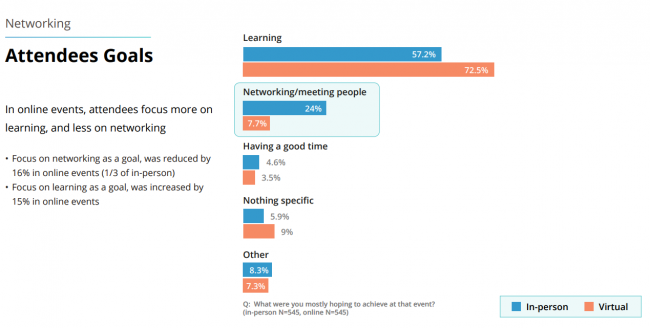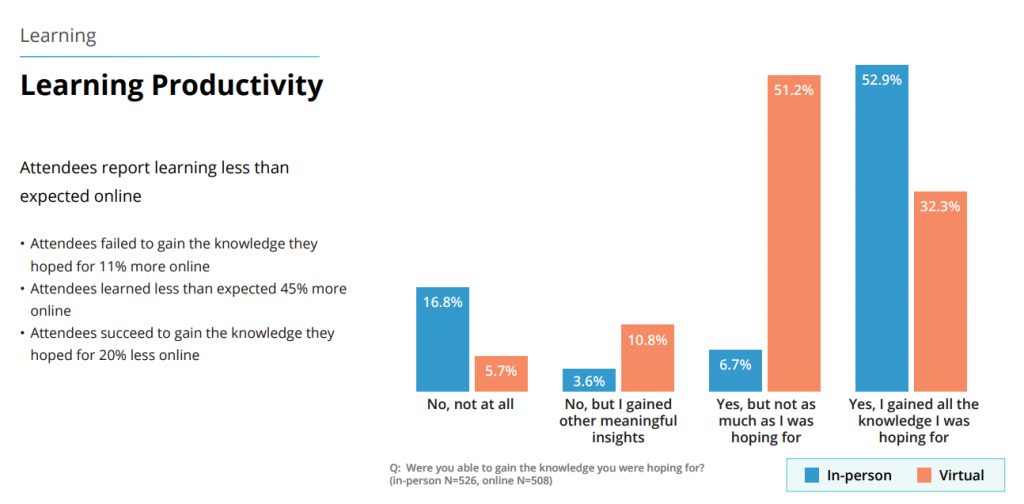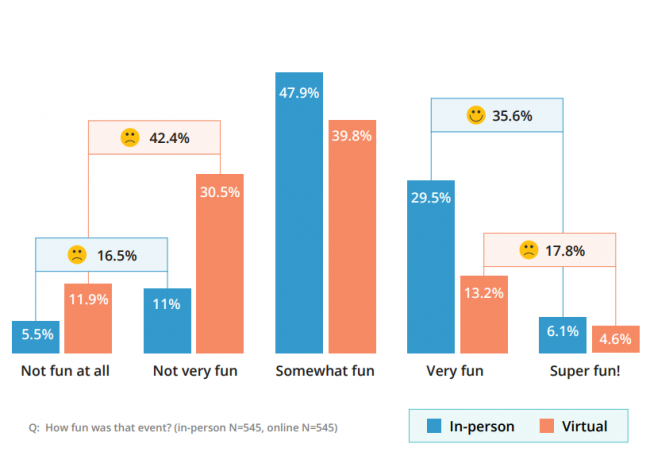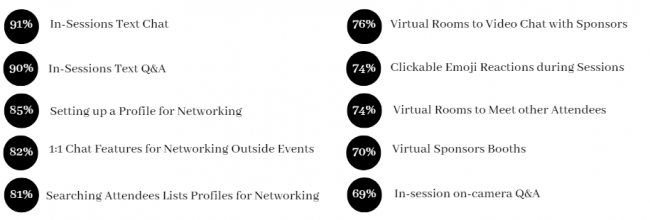In order to make attendees’ experience satisfactory, virtual events should enable participants to gain the knowledge they are looking for and connect with other attendees.
As the world has shifted to virtual events, attendees have developed a personal taste and now have several expectations from their virtual experience, which creates new challenges for event planners.
Most virtual events—78%—offer attendance at no charge, according to a Bizzabo report. Those that are paid (22%) have an average price of $149 (based on aggregated Bizzabo user data).
Participants do not attend all event sessions—only a handful of them—and this is true not only of virtual events but of all event types.
The majority of virtual live attendees witness no more than 20% of all sessions. While people attend a smaller share of the agenda online, they view more sessions than those who choose physical events. This is especially true when considering the ones who view on-demand content.
In fact, networking is a goal or a high interest to only about 18% of virtual event participants. 31% are open to the idea but not planning it for their virtual experience, while 51% are not interested in it altogether.
As approaching people is not possible, the nature of digital events makes conversations flow less naturally than in the physical world. They tend to depend more on event activities, which creates an opportunity gap for marketers, who should design events in a way that facilitates these connections (for those who desire them or are at least open to them).
They tend to depend more on event activities, which creates an opportunity gap for marketers, who should design events in a way that facilitates these connections (for those who desire them or are at least open to them).
Even though gaining professional knowledge is expressed to be the most important objective for virtual attendees, they nevertheless claim to be underwhelmed by their learning outcomes. Most (51%) do report having acquired some knowledge but not at the level they were expecting.
Another blow coming to marketers from attendees’ feedback is that virtual attendees simply have much less fun than in-person participants. A whopping 42% rate their event as not entertaining, compared to 18% whose experience in this regard is very positive. This is yet another area that event marketers should focus on improving.
In the eyes of the event organisers, the top challenges related to virtual events are engagement (35%), and networking (20%). With the second factor, we can observe some consistency with attendees’ responses. Both of these issues can be mitigated with event technology to some extent (but employing the right tactics is equally important).
Indeed, when asked about the most important feature when choosing a virtual event platform, marketers’ second most common answer is networking tools, and third is live polling and voting (for engagement)
Finally, engagement can and should continue after the event, with proper incentives in place for the attendees to share their experiences with their colleagues. It is an area that could be improved, as 18% of people do not share any insights taken from the event with others.
But those who share do so mostly through face-to-face conversations (37%), which is much more engaging than giving a copy of materials (31%) or sending an email summary (14%).
Virtual events are here to stay—for the foreseeable future. To make a difference in this space, marketers must design them in a way that meets the expectations of participants and drives their own business results.







